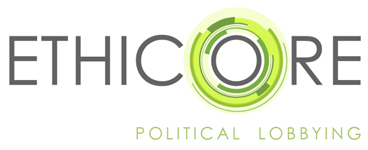 On 20 September 2012, the Presidency confirmed that South Africa President Jacob Zuma had referred back to Parliament the Intellectual Property Laws Amendment Bill (B-8B of 2010). Seeking to protect South Africa’s indigenous knowledge the intellectual property law system, the Bill was previously approved by the National Assembly and National Council of Provinces in October and December 2011 respective. Since then, the President has received submissions advising him against signing the Bill into law.
On 20 September 2012, the Presidency confirmed that South Africa President Jacob Zuma had referred back to Parliament the Intellectual Property Laws Amendment Bill (B-8B of 2010). Seeking to protect South Africa’s indigenous knowledge the intellectual property law system, the Bill was previously approved by the National Assembly and National Council of Provinces in October and December 2011 respective. Since then, the President has received submissions advising him against signing the Bill into law.
 According to the Presidency, the President has referred the Bill back to the National Assembly for reconsideration on the following grounds, after considering all of the submission received against signing the Bill into law and a legal opinion on the matter:
According to the Presidency, the President has referred the Bill back to the National Assembly for reconsideration on the following grounds, after considering all of the submission received against signing the Bill into law and a legal opinion on the matter:
- The Bill was never referred to the National House of Traditional Leaders as required in terms of section 18 of the Traditional Leadership and Governance Framework Act 41 of 2003; and
- certain of its provisions affect traditional leadership and cultural matters and should therefore be dealt with in terms of section 76 of the Constitution.
- The Bill as it is now, may not be constitutional.
Objectives
The proposed legislation was drawn up to ensure adequate protective mechanisms for indigenous knowledge (IK) in South Africa. The bill also aims to:
- Improve the livelihoods of indigenous knowledge holders and communities
- Benefit the national economy
- Prevent bio-piracy
- Provide a legal framework for protection and empowerment of local communities
- Prevent exploitation of knowledge
- Raise awareness within communities of the importance of indigenous knowledge for development
- Establish community trusts
- Facilitate the recording, documenting and storage of indigenous knowledge
The proposed legislation will also aim to introduce an alternative dispute resolution mechanism into all areas of IP. The idea behind this is to help poor communities to defend their IK.
Background
When trade and industry minister Rob Davies presented the bill to the National Assembly in October 2011 during a second reading debate of the National Assembly on the Bill, he referred to indigenous knowledge as “distinct in many respects from IP generally protected by IP systems”. “IP systems and practitioners do not easily accommodate knowledge that is collective in nature and also not time-bound. The protection and beneficial use of indigenous knowledge (IK) therefore requires that other areas of law be reviewed, and speedily so, to bring about comprehensive protection of IK,” he said.
The amendment bill began its passage through Parliament in May 2010 and was re-drafted in June 2011. An earlier version of the bill was to have been tabled in the National Assembly in June 2008 but was withdrawn.
Legislation likely to be affected by the bill when promulgated includes:
- Patents Act 57 of 1978;
- Copyright Act 98 of 1978;
- Performers Protection Act 11 of 1997;
- Trade Marks Act 194 of 1993; and
- Designs Act of 1993.
Analysis
Interestingly, during a recent meeting of Parliament’s Portfolio Committee on Trade and Industry held on 14 September 2012 attended by the Minister of Trade and Industry, Inkatha Freedom Party (IFP) Member of Parliament, Mario Oriani Ambrosini questioned the Minister about whether there was any truth to the rumours that the President would return the Bill to Parliament over concerns about its constitutionality. In response, the Minister indicated that he was not in a position to confirm anything as regards the Bill that was being contemplated by the Presidency and replied that the matter is a rumour to him too.
Downloads
